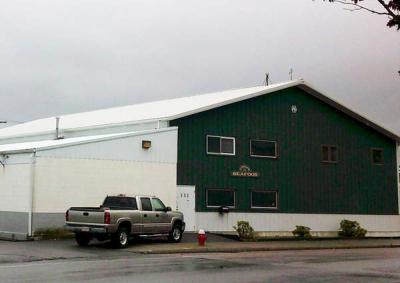Carlos Rafael sentenced to 46 months in prison
Dartmouth resident and fishing mogul Carlos Rafael was sentenced 46 months in prison for falsifying fishing records and smuggling the profits to Portugal.
The sentence was handed down in Boston federal court on September 25 by U.S. District Court Judge William G. Young. He also ordered Rafael to pay a $200,000 fine and $108,929 in restitution to the United States Treasury. Rafael will also be subject to three years of supervised release, during which he will be banned from working in the fishing industry.
Rafael's lawyers had asked for a sentence of 24 months of probation, a maximum fine of $250,000, and $2.8 million in forfeitures, according to court documents. The court has not yet decided on forfeiture details.
“Mr. Rafael profited at the expense of other hard-working commercial fishermen by falsifying records so he could keep fishing while they were sidelined,” said Acting United States Attorney William D. Weinreb in a press release. “The Court accurately described Mr. Rafael’s actions as systematic corruption. He will now face the consequences of violating federal laws designed to sustain the New England fishery.”
The sentencing comes six months after Rafael, 65, pleaded guilty to a 28-count indictment in connection with a scheme he carried out as owner of Carlos Seafood Inc. in New Bedford. The charges included one count of conspiring to commit offenses against the United States, 23 counts of false labeling and fish identification, two counts of falsifying federal records, one count of bulk cash smuggling, and one count of tax evasion.
Rafael was arrested in February 2016, accused of filing false reports to the National Oceanic and Atmospheric Administration. He claimed approximately 782,812 pounds of fish as abundant species like haddock between 2012 to January 2016 when he actually caught cod, sole and other species with strict quotas, according to the U.S. Attorney’s Office.
To smuggle his ill-gained profits, prosecutors said Rafael smuggled large amounts of money to Portugal. Rafael detailed how the scheme worked in a meeting with undercover agents posing as Russian organized crime figures interested in purchasing the operation. He told the agents he had made $668,000 dealing with a buyer in New York City.
According to the U.S. Attorney’s Office, Rafael exchanged the fish for duffle bags filled with cash, which he then smuggled out of the country to Portugal to avoid taxation.
The fate of Rafael’s vast fishing empire, however, remains up in the air as the courts continue to debate the potential forfeiture of his vessels.
Through a series of corporate shells, Rafael owned 32 fishing vessels and 34 commercial fishing permits – representing one of the largest commercial fishing businesses in the United States. The court issued a preliminary order for the forfeiture of 13 fishing vessels and their accompanying commercial fishing permits earlier this month.
A number of parties claimed an interest in the vessels, including Rafael’s wife, Conceicao Rafael.
According to a document filed by Rafael’s attorneys, the value of those 13 vessels and permits is more than $30 million. Rafael’s attorneys are in talks with a potential buyer to purchase the vessels for 15 percent below appraised value. The name of the buyer is unclear, as the full document was sealed in the court.
Two Bristol County Sheriff’s Deputies have also been charged in connection to the case, accused of helping Rafael smuggle cash money to Portugal through Logan International Airport.
In July, Antonio Freitas, 47, was convicted of bulk cash smuggling, accused of helping Rafael smuggle money to Portugal through Logan International Airport. Jamie Melo, 45, a captain in the Bristol County Sheriff's Office, was also arrested on August 30, accused of helping to smuggle money through the airport.











